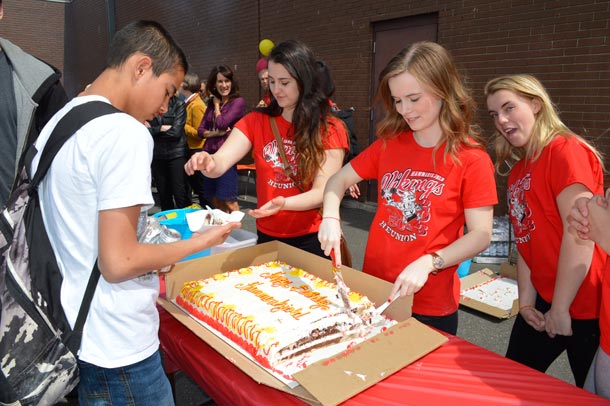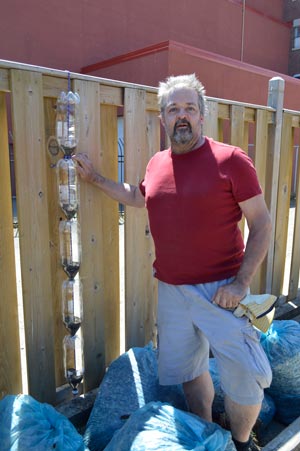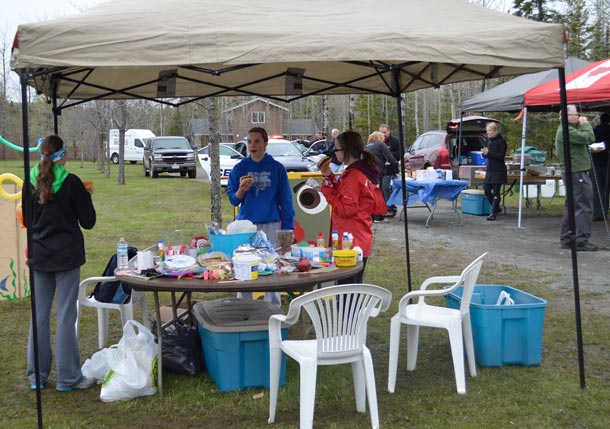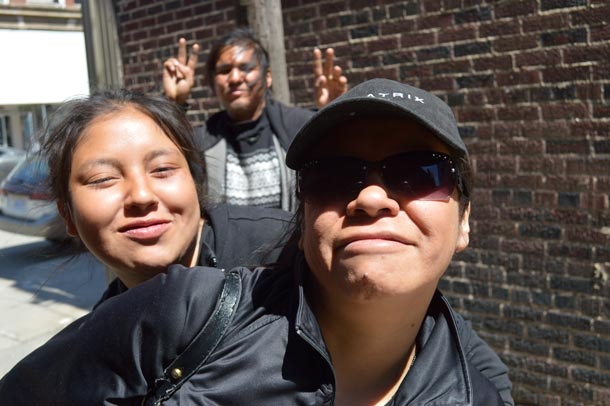
THUNDER BAY – Thunder Bay is a city with a giant heart. People in the city step up to support charities, get involved and volunteer, and work to make a better world. From the international efforts of the Global Conscience Circle that is Thunder Bay’s unofficial International Ambassadors, to groups that spring up when needed like the “Basement Bunch” who stepped up during the May 2012 Flood the efforts of many to make the city and the world a better place are many. We have groups and individuals who make this community the kind of place it really should be, Canada’s greatest city.
Often it is the ‘unsung heroes’ in our city, those who do the needed work without expecting ‘fame or fortune’ that really get the job done.
Those efforts help our city in ways most residents simply accept as ‘The Thunder Bay way’.

Communities that stick together and do good for others cope better with crises and are happier for it, according to a new study by John Helliwell, from the University of British Columbia in Canada. Their work suggests that part of the reason for this greater resilience is the fact that humans are more than simply social beings, they are so-called ‘pro-social’ beings. In other words, they get happiness not just from doing things with others, but from doing things both with and for others. The paper was published online in Springer’s Journal of Happiness Studies.
How does the social fabric of a community or nation affect its capacity to deal with crises and to develop resources that maintain and improve people’s happiness during those difficult times?
“Communities and nations with better social capital, in other words, quality social networks and social norms as well as high levels of trust, respond to crises and economic transitions more happily and effectively,” Helliwell and his team conclude.
Their paper begins with an assessment of social capital and happiness during the recent years of economic crisis in 255 US metropolitan areas. Overall, social capital has improved the nation’s happiness during the period of economic crisis, both directly and indirectly by mitigating the impact of rising unemployment.
In Thunder Bay the positive efforts of groups across the city, Evergreen; A united neighbourhood, the Community Action Group, the ‘secret’ Limbrick Group who reportedly have been told they can’t use the ‘L’ word in their name, all make a huge difference in our city.
Helliwell and colleagues then take a broader perspective by examining national average happiness in OECD countries after the 2008 financial crisis. They group countries according to their levels of happiness:
- The group with rising happiness includes countries less directly affected by the crisis, with policies well chosen to enhance the well-being of their residents – as in South Korea, for example.
- The group with falling happiness includes those countries worst hit by the original crisis, and by its subsequent spillovers in the Euro zone. In this group, social capital and other key supports for happiness were damaged during the crisis and its aftermath
The study also digs deeper into the relative roles of social capital and income as determinants of happiness. Evidence from countries in economic transition demonstrates the power of social trust, i.e., the belief that generally speaking, most people can be trusted. Social trust is an indicator of the quality of a country’s social capital, which increases happiness directly but also permits a softer landing in the face of external economic shocks.

Thunder Bay faced a ‘Perfect storm’ as former Mayor Lynn Peterson put it. The forest sector was hit at the same time the Canadian dollar was not doing well against the US dollar and was followed by a global recession. That left Thunder Bay in many cases needing to do with less.
Moving forward, as the federal government and provincial government are both facing deficits, getting massive amounts of money for programs in the city is going to be harder to do. As cutbacks in spending happen, and they will, Thunder Bay, and all of Northwestern Ontario with great expanses of geography and fairly small populations are likely to need even more work from the social groups both formal and informal that make a difference in our city.
The authors wrap up with a look at the power of human nature and the suggestion that the core goal of public policy should be to facilitate the development of institutions that bring out the best in humans – a view articulated by Elinor Ostrom, an American political economist and the first woman to win the Nobel Prize in Economics.
For Northwestern Ontario, perhaps the real story is many people across the region are doing the grassroots work that must be done, and often as is usual they are doing it without seeking fame, the spotlight, or credit.
If you are not a volunteer, today make it a task to thank one. If you can’t find one, support one of the worthy groups in our city who are making a difference.
Now, go take on the day!
James Murray














